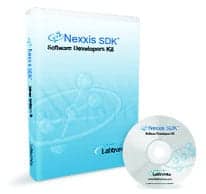
Prostate cancer is one of the most common cancers in American men, according to the American Cancer Society. Of some 184,400 men diagnosed with the disease this year, approximately 31,900 will die. The American Urological Association (AUA) now recommends that all men aged 50 and over who have at least a 10-year life expectancy be offered routine PSA testing. High-risk men and those with a family history of prostate cancer should be tested at an earlier age, according to the AUA. Landmark clinical studies conducted over two decades have shown that measuring the serum levels of prostatic specific antigen (PSA), in conjunction with digital rectal examinations, is useful in the early detection of prostate cancer. National Cancer Institute investigators recently linked a decline in prostate cancer mortality to more widespread PSA testing. In the March 2000 issue of Epidemiology, they wrote, “A screening program that is able to detect a significant number of prostate cancers before they metastasize could have a relatively rapid impact on mortality.”
When the first total PSA assay (manufactured by Hybritech) was approved by the FDA in 1985 (initially for monitoring, but later for diagnosis), the diagnosis and treatment of prostate cancer was revolutionized.
A large, multicenter clinical trial by Catalona, et al., subsequently found that when total PSA is >10 ng/mL, the probability of cancer is 50 percent. Further studies showed that measurements of total PSA detected prostate cancer as early as five years before symptoms appear, suggesting the test can enhance the survival rate of men diagnosed in the early stages of the disease. The use of Hybritech’s PSA to help detect prostate cancer in men (50 years or older) with a negative DRE was supported by these studies.
fPSA improves specificity of PSA
Total PSA measurements are comprised of both “free” and “bound” forms of PSA. Although total PSA has been proven to be an important aid in the early detection of prostate cancer, it is not 100 percent effective in differentiating between prostate cancer and diseases like benign prostatic hyperplasia, which also can elevate total PSA levels. This is particularly true of the majority of men whose results are in the so-called “diagnostic gray zone,” with total PSA levels between 4 and 10 ng/mL. Currently, most men in the gray zone are biopsied, even though 75 percent of this group are found not to have cancer.
In 1998, a large multicenter study on men, age 50 plus whose tPSA was four to 10 ng/mL, and who had non-suspicious digital rectal exams found that a follow-up fPSA assay detected 95 percent of prostate cancers, reducing unnecessary biopsies by 20 percent.
The study also established that a free PSA level of 25 percent or higher indicates a lower risk for prostate cancer, lessening the need for biopsy. (Prostatic biopsy is required for diagnosis of cancer.) This study, which used the Hybritech total and free PSA assays, formed the basis of FDA approval for the manual Hybritech free PSA assay.
More recent follow-up clinical studies, based on the original Catalona study and reported in the October 1999 issue of Clinical Chemistry, have verified that the 25 percent cutoff of the Hybritech fPSA assay had a 95 percent rate of cancer detection (clinical sensitivity). The October 1999 issue of The Journal of Urology said the test, “appears helpful in staging the severity of a patient’s prostate cancer.” The March 2000 issue of Urology reported that the test, “appears to work equally as well in black males as it does in white.”
Both the manual and new automated versions of the Hybritech PSA assays offer equimolar PSA measurements, which detect free and complexed PSA equally in the blood, thereby providing a more accurate assessment of the total PSA value. Some tests detect free and bound PSA unevenly. These skewed assays can overestimate or underestimate total PSA levels.
The manual Hybritech total PSA assay established a 4.0 ng/mL cutoff as the upper limit of normal. This cutoff has since been adopted by clinicians as the reference range and appears in most of the world’s literature on the use of total PSA.
Hybritech’s free PSA assay, the only fPSA assay currently approved by the FDA, is the only fPSA test calibrated and approved by the FDA for use as a follow-up specificity-enhancer to Hybritech’s total PSA assay.
Matching PSA assays is crucial for accurate test results. Using different manufacturers’ total and free PSA assays can give different results, even in the same patient. One study, Jung, et al., that compared two fPSA and total PSA assay systems to determine percent-free PSA levels found significant differences in cutpoints, sensitivity and specificity. Differences that could result in a possible misdiagnosis.
Automating FDA-cleared PSA assays
With the March 2000 FDA approval of the automated Hybritech total and free PSA assays, laboratorians can benefit from the clinical quality and reliability of these assays, along with the speed and convenience of having them automated.
For example, the time to first test result for the automated PSA assays is 20 minutes versus two hours for the manual versions. Both tests are dual monoclonal assays with demonstrated clinical utility, long-term lot-to-lot consistency and no cross-reactivity with PSA-like analytes. Other attributes of the automated PSA assays include:
• Calibration curve is stable for 28 days
• Possible throughput of 100 tests per hour
• Sample volume reduced to 25 uL from 50 uL
• Measurement range up to 150 ng/mL for total PSA and up to 20 ng/mL for fPSA
• Less than 5% imprecision across assay ranges
• Analytical sensitivity of less than 0.005 ng/mL for the free PSA assay and less than 0.008 ng/mL for the total PSA assay.
PSA at Rogue Valley Medical Center
The laboratory at the Rogue Valley Medical Center in Medford, Ore., has long used the manual versions of the Hybritech total PSA and free PSA assays because of their proven clinical reliability.
The 305-bed medical center, acute-care facility and cancer center runs an extensive laboratory outreach program. It runs approximately 100,000 chemistry tests per month, 630 of which are PSA assays. Overall, 67 percent of laboratory testing is in the form of outpatient requests. More than 80 percent of those outpatient requests are PSA tests.
Jack Montgomery is the technical specialist in chemistry and special chemistry at Rogue Valley Medical Center in Medford, Ore.
For additional information, contact Beckman Coulter at 800-854-1957, or visit its Web site at www.beckmancoulter.com.



